For much of human history, people have set religion and science against each other — often creating “either/or” choices on matters both existential (the theory of evolution) and practical (vaccine requirements). Many physicians, however, see no clash; their spiritual beliefs interlace with their practice of medicine.
These doctors say that connecting medical care with their sense of spirituality improves their care — for patients and for themselves. An article last year in JAMA (Journal of the American Medical Association) urged doctors to pay attention to the spiritual aspects of their calling: “Whether asked overtly or not, profound questions about meaning, value, and relationship are posed by illness and death, questions that are transcendent, stretching beyond what can be known empirically.”
Below, doctors share their spiritual philosophies and experiences. While many people who are unaffiliated with religious denominations are spiritual, these physicians identify with specific faiths.
Farr Curlin, MD
Josiah C. Trent Professor of Medical Humanities
Duke University School of Medicine, Durham, N.C.
Co-director, Initiative on Theology, Medicine and Culture
Duke Divinity School, Durham, N.C.
Anglican
My entire line of work was kicked off by what I sensed as a problem in medicine: despite the fact that I and many of my colleagues went into medicine confident that medicine can fit well into the Christian’s vocation to love God and love one’s neighbor, in medical education I was getting the message that religious commitments are fine as personal values, but they should be kept separate from the professional sphere. Insofar as one’s religious commitments appear to interfere with “standard” medical care or what leading figures expect of you or what patients expect of you, that’s the personal interfering with professional commitments.
I found that unsatisfying both spiritually and intellectually. As a Christian, there’s no part of my life nor any part of creation that is not called by God and accountable to God.
This idea that physicians will keep their personal values and professional values separate seems to be a lazy way of ignoring the most important questions underlying the experience of illness and the practice of medicine: What are we as human beings? How do we flourish? Why do we get sick? What should we hope for in the face of our sickness? What are ways of using technology and other resources to respond well to human mortality, sickness, and frailty? Those are questions we answer implicitly by our actions in health care. Those are questions about which religious traditions have a lot to say.
I launched this career seeking to understand how different spiritual and moral commitments shape people’s practices of medicine and our understanding of what medicine is for. And seeking to create space for people in medicine to take seriously the substance of religious faith.
Andrea Weintraub, MD
Attending neonatologist
Mount Sinai Kravis Children’s Hospital, New York
Jewish
I consider myself more of a spiritual person than a religious person, and that forms a lot of my worldview. I specialize in neonatal intensive care, so I deal with life and death all the time. And I have had spiritual experiences in the process of delivering that care.
I have cared for babies who I was sure were not going to live through the night and they waited for their parents to arrive, to almost give them permission to die. I remember once, this baby had been dying all day. I was sitting by the baby holding hands with one of the nurses. Then the dad came and held the baby, and suddenly all the vital signs were completely stable. For that half an hour that the dad held the baby, the baby looked the best the baby had looked. Then baby went back into the bed, the dad left, the baby died. I can’t explain that.
I have experienced the feeling of an angel sitting on my shoulder. I don’t mean an angel with wings. There is a presence there that’s bigger than all of us, guiding whatever is happening, through me. I remember once, this baby was coding, and it was a difficult airway for breathing tube insertion. I had this feeling of an angel sitting on my shoulder, because I don’t know how that tube went in. Wasn’t me.
And let’s say I have to have a conversation with a family because their baby has something terrible — life-limiting or life-threatening. I don’t plan what I’m going to say. I open my mouth and the Lord speaks. Do I mean that literally? No.
I have felt often in my practice of medicine that I’m a conduit. My role is to guide the patient and family through whatever is happening.
Shagufta Yasmeen, MD
Medical director
Shifa Community Clinic, Sacramento, Calif.
Muslim
Islam teaches us to provide care to anybody who’s sick. It does not discriminate between anybody if they are Christian, Jewish, or atheist. We are all human and have some implicit bias. In the clinic I try to remove the implicit bias against any race, religion, gender, or around other issues which may separate us from each other. We might not provide the same care to everyone if we don’t practice our faith.
I remind myself of this by going beyond my comfort zone to make people comfortable in the clinic. Like, patients who are LGBTQ or transgender — I embrace those people, I set an example for our doctors, students, and volunteers about how to provide quality care to patients who are marginalized by society.
Another important thing is speaking the truth all the time to patients and families. Nobody’s perfect. We may miss some diagnoses with patients and we don’t always come back and say this is a mistake we made. Speaking the truth comes from having a strong faith.
Sometimes the truth is very hard. The mother of one of my family friends was in the ICU. They were not able to make the decision about what they should do, the next step in her care. I sat with them and talked about the quality of life rather than the quantity of life. Islam teaches that if the body is dying, if there is no purpose for the body, then there is no point in keeping the body alive.
I brought my faith to the family. They are Muslim. I said that through our faith we are helping to make the patient more comfortable rather make her suffer. We talked about getting her comfortable and letting the patient go.
Jose C. Florez, MD, PhD
Chief, Endocrine Division and Diabetes Unit
Massachusetts General Hospital, Boston
Catholic
I start my day walking to mass at six in the morning. It’s a way to make sure everything I do for the day is done for the right reason, as an offering to God. I aim to imitate Jesus Christ. He sowed healing, physically and spiritually. Medicine is one of the professions in which you can follow him and imitate him most closely.
As a physician, I’m limited. I can try to alleviate suffering and try to cure, but I don’t always succeed. When I realize I’m powerless from a medical perspective, I try to show emotional support. I say, “I will pray for you.” You don’t want to make the patient uncomfortable; they may be non-believers. But I think everybody, whether you are spiritual or not, appreciates that connection because it shows that your doctor actually cares for you.
And I do pray for them. As a family, when we gather for dinner, we say grace. My wife is also a doctor, and sometimes we say, “Please pray for a patient of mine, who is having this issue,” and we’ll have the whole family pray for that patient. The offering is real.
If the patient is willing to connect on a faith level in a deeper way, then we talk. I say there is an all-powerful and all-loving God who cares deeply for them, and everything happens for a reason. If the person is dying, I say we are all on our way to Him, and maybe the time has arrived. I’m willing to walk with them along the way.
For a patient who believes there is an afterlife, I can help them realize that the big step they’re about to go through is a transition. When you can’t help them physically, you can help them make that transition. Sometimes all we can do is accompany people.
Roopa Kohli-Seth, MD
Director, Critical Care Institute
Mount Sinai Health System, New York
Sikh
I grew up in a religious environment in India. My family would regularly go to our gurudwara [Sikh place of worship], where we would pray for the good of the world, the good of our family, and the good of our children. I’ve done it all my life.
I believe that many good things have come to me because of my parents’ faith and their goodwill. And it is my firm belief that by doing good, good will come back to you. My mother has told me this since I was five years old.
Coming to the United States was a spur-of-the-moment decision. I was sitting in a library in my hometown, Chandigarh, and decided I needed to go to the U.S. for school. I filled out an application to the Medical College of Virginia that day. I received an acceptance letter with a full scholarship and a monthly stipend. I don’t think that was just about me; I think I benefitted from my family’s spiritual commitments. I feel the same about everywhere my career has taken me, like landing at Mount Sinai for my critical care medicine fellowship, and becoming director of the institute that oversees intensive care units throughout the Mount Sinai Health System.
I practice my religion and pray for my three children every day. Sometimes I pray for patients — the ones where my instinct tells me they need an extra boost. I come back to my office and pray for them and wish they can go back to their families and have a wonderful life.
Heval Mohamed Kelli, MD
Cardiologist
Northside Hospital Cardiovascular Institute, Lawrence, Ga.
Muslim
I fast and I pray as much as I can. Sometimes when I walk in the patient’s room, and I feel like it’s a difficult case, I breathe in and ask God for help, to give me the strength. Because in the end, no matter what we do as physicians, there is always some kind of higher power that has control over the destiny of people.
One time a patient told me something that has stuck with me for years. He said, “You know, after God, our lives are in your hands — the doctors’.” That was powerful, to hear a patient say that. That after they’ve prayed, they’re looking to us for answers and for help.
I’m a Kurdish refugee from Syria and a Muslim. I came two weeks after 9/11, and Islam has been under the lens a lot since then. Sometimes patients are not informed about my religion; they get misinformation from the news and have some biased views. When you are a physician, you are also trying to represent your culture and religion. The only way you can fight misinformation is to show the goodness of your religion.
So when I walk in the room to see a patient, I treat them the way I’d want my family to be treated. I go in the room with that spirituality and that intention. The patients always remember how you made them feel. I think that’s the most powerful way to eliminate bias and misinformation.
——
This article is reprinted with permission of the Association of American Medical Colleges. It first appeared in their online magazine AAMCNews (March 2022).
Patrick Boyle:
pboyle@aamc.org


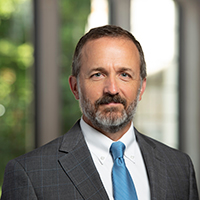
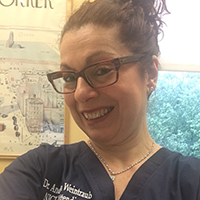
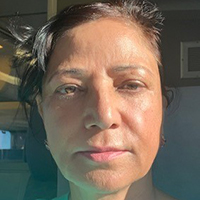
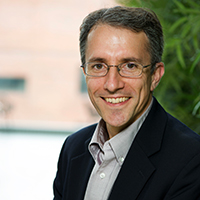
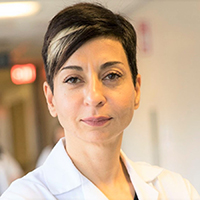
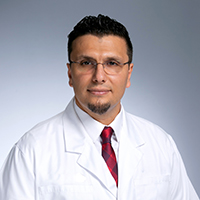






This was the most interesting and informative section of Kolbe Times. To know that these Doctors care and follow their religious upbringing is amazing! God is there with them! Blessings & peace!